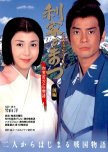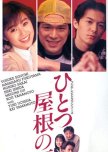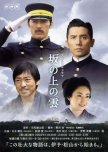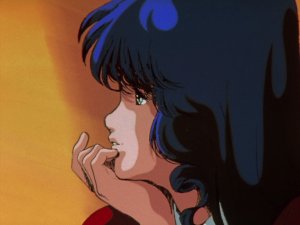
A voice for the voiceless
An engrossing political thriller that manages a fine balance between human drama and suspense. Reflecting our world where it often seems as though corruption and misinformation are the order of the day, Shinbun Kisha lays out a David and Goliath tale of ordinary citizens standing against government corruption. While the inciting incident might seem small, that’s exactly what the drama tries to highlight; if society remains apathetic to the “small” corruptions, what will the powers that be try to get away with next? It also hits back against the pervasive thought that one person couldn’t possibly make a difference when it comes to political change. After all, we never know what our actions might inspire in others.Some may find early episodes slow, although I felt they did a good job establishing the broad strokes of the story and characters. In later episodes, however, there were some places where the story struggled to keep pace or stumbled over minutiae; the overall quality of the episodes was undiminished, but I sometimes wondered if a scene wouldn’t have been better placed elsewhere or even cut entirely. This was often the case with scenes that included Mayu, who could feel superfluous despite her early involvement in the development of another character.
That said, I found it difficult not to binge Shinbun Kisha. Since it often seems to mirror real life, the plot somehow appeals to the audience’s sense of justice. The characters are relatable for the same reason and win sympathy easily. Like any good story, Shinbun Kisha made me want to know more—but even beyond that, I needed to know if justice would actually be served. It was difficult not to get invested.
The camera is unobtrusive, yet still impactful. For example, during the press conferences where Yonekura Ryoko’s Matsuda is the only one brave enough to drill the administration for answers, she’s literally seated alone with a block of empty chairs surrounding her. Sickly greens and yellows are employed in sequences when corrupt dealings are underway, and chilly blues overlay rooms in which a character has been driven into a corner or frozen out.
Yonekura Ryoko and Go Ayano, perhaps unsurprisingly, are clear standouts in terms of performance. However, Yokohama Ryusei turns in a solid performance as an indifferent youth who slowly begins to understand the power that young people have in shaping the future of a country.
Recommended overall, especially if you like this genre. I'd love to see more like this from Netflix.
Was this review helpful to you?

Chilling in light of current affairs; keeps viewers on edge
"You see, it’s the cash flow that reflects the naked truth.”Parallel Tokyo, while intense and frightening in its own right, now seems to glimmer with a chilling prescience in light of COVID-19. Though it explores the aftermath of a catastrophic earthquake in the heart of Tokyo, its themes are still starkly relevant. Here is a tragedy that nobody could have truly prepared for, even though there were signs. Reporters are asked to put the integrity of their corporate sponsors above unvarnished truth and public wellbeing. Misinformation runs rampant online, making it difficult to determine what’s real and not. Even when danger passes, the world is changed forever, in unforeseeable ways.
Centering the action on a broadcasting studio and its employees was an excellent choice. This allows the viewer both distance from the action and constant input, keeping the plot moving organically. Takahashi Katsunori catches the eye as the chief editor of the news station, often the vehicle for the themes conveyed by the drama. Koshiba Fuka turns in a solid performance as Kuraishi Mika; her portrayal of a vulnerable everywoman who manages to conjure inner strength in the face of adversity is believable and helps the audience settle into the story easily. That said, the strongest point of this drama is the script and pacing. Not only does Parallel Tokyo keep you on the edge of your seat, it also has a lot to say. Everything else seems a bit secondary, although in this case, I wouldn’t call that a bad thing.
Remember this, if nothing else: In times of great tragedy, all we have is each other.
Was this review helpful to you?

The key word is, of course, together; it’s impossible to imagine one without the other. Theirs is a deeply romantic story, an enduring love that blossomed and thrived despite the power struggles ravaging the country around them. The script manages to illustrate this bond beautifully, intertwining gentle domestic sequences with historical events important to the Maeda. Viewers become quickly immersed in the warm-hearted couple, their family and friendships. However, unless one is familiar with Toshiie’s place in history, it is difficult to justify why anyone needs to see this era through his eyes—at least until the second half of the drama. After a certain event, the pace picks up and the stakes rise dramatically, conspiring to draw Toshiie center stage. This is where Toshiie and Matsu shines; all of the emotional groundwork in the first half lends itself to a veritable explosion of emotion in the second, which is immensely satisfying and heartbreaking all at once. And that ending ...! Masterfully done.
As expected of a taiga, the cast is enormous. Karasawa Toshiaki and Matsushima Nanako star as Toshiie and Matsu respectively, and while Karasawa is everything a samurai should be, Matsushima steals the show. Her turn as the strong-willed, upright Matsu, respected even by Oda Nobunaga, is career-defining. Sorimachi Takashi, our Nobunaga this time around, is memorable, carrying intimidation even in his posture; his signature line “De aru ka?” is a running gag throughout the series. Kagawa Teruyuki is again quirky and energetic as Hideyoshi, which is by turns brilliant and tiresome—there are times I felt he missed crucial nuance other actors playing the same role have knocked out of the park. Additional highlights include Matsudaira Ken as Shibata Katsuie, tragic mentor to Toshiie and Oikawa Masahiro in the role of Maeda Keijiro, who brightened later episodes with his very presence.
The soundtrack, composed by Watanabe Toshiyuki, is elegant and fitting. I was particularly impressed with the sweeping romantic theme, especially played over the sweet introduction featuring our protagonists.
Was this review helpful to you?

When a story lacks direction, it’s sure to suffer. What did this drama want to be? An idol drama with tons of romance? A monster-of-the-week romp, or an urban fantasy with cataclysmic consequences? The tone is erratic, especially in the beginning, whiplashing viewers between horror and comedy without prelude. In addition to the copious filler, the plot was pulled in so many directions that very little progress was actually made. Not even the romance between the leads received the attention it required to blossom satisfyingly—it just happens, for no rhyme or reason, and we’re expected to invest in it immediately. Overall, the story promises apocalyptic stakes yet delivers something haphazard and episodic, peppered with hollow romantic scenes (the exemplar of which is an early out-of-character, cat-themed aegyo from the female protagonist).
One of the main issues can be found in the massive cast, populated by multiple big names and actors of varying talent and skill. Despite a valiant effort by Lee Seung Gi as Son Oh Gong, the secondary cast steals the show. Lee Hong Ki (PK) and Lee Se Young (Bu Ja) are a delight in spite of frustrating plot developments, easily drawing focus away from the main storyline. The same goes for Lee El as the dog-demon assistant Ma Ji Yeong, Kim Sung Oh as hapless secretary Lee Han Joo, and Sang Hyuk as General Frost and his warm-hearted sister, with whom he shares a body. Cha Seung Won, however, is completely wasted in his role as Ma Wang, the demon king. The character gives him no room to stretch his dramatic legs, instead relying on the zany comedy he so excels at—but this gets old fast, and it’s frustrating to see him spin his wheels with such a flat character. This leads us to the weakest of the bunch—Oh Yeon Seo’s performance as Jin Sun Mi is uninspired, and I couldn’t tell you if her expression changed even once. Her scenes with Lee Seung Gi are sometimes almost uncomfortable to watch, given how dynamic he is in comparison.
That said, the OST is consistently good. Standouts include the absolute bop “Let Me Out” by NU’EST, the tender ballad “When I Saw You” by Bumkey, and the cheerful “I Will Be By Your Side” by MeloMance.
Was this review helpful to you?

Standouts include Tamura Masakazu as Kanichi, whose breathless rants are definitely a highlight. Tamura pivots between loud and overbearing to warm, tender, and wise with an ease that is stunning. Though his character’s subplot with Ishida Yuriko’s Machiko is the drama’s biggest stumbling point, it was a lot of fun to watch him interact with pretty much anyone. An honorable mention to extremely young Okada Junichi, whose Kanzaki Tadashi is cut from the same cloth as his father—it’s pretty obvious he was always destined to grow into the strong actor that he is today. He draws the eye despite the extreme focus on his sisters (particularly Hirosue Ryoko’s Suzu, whose storyline is a bit of a mess). Everyone else more or less does their part, though some of the characters are bit superfluous; honestly, I could have done without the gyaru-culture caricature that is Sumika.
As for the music, nothing was memorable aside from the theme song, "Sayonara, Daisuki na Hito (Goodbye to the one I love most)" from Hana*Hana. It’s a bittersweet ballad with delicate vocals that sets the stage for the growth undertaken by the cast.
Was this review helpful to you?

There are no perfect families. Even with the same blood coursing through our veins, we all remain human; living in close quarters, we’re bound to have differences. Disagreements will accompany warmth and support, affection and acceptance mix with disappointment and misunderstanding. But when we have nowhere else to go, we can always return home (right?) Yet like any other relationship might fail, so may a family—romantic as it sounds that familial bonds are unbreakable. So much is stacked against this most important of relationships, though the ideal is that word again: “unbreakable.” Outside external problems like financial concerns, personal failings and instances of abuse and neglect constitute the most daunting. You see, while there are no perfect families, there *are* many unhappy ones.
Kazokugari (literally “Family Hunting”) takes this idea to ask some harsh questions. At its very worst, can a dysfunctional family be saved? If things appear hopeless, should the entire institution of family be torn down—even if that necessitates murder? When we’re hurting too much, is it better to live or die (and do we have the right to make that decision for others)? To answer, this drama uses three intertwining stories whose themes and importance overlap. Our main characters combat their own demons separately, but each is being suffocated by family issues and lack of direction or comfort. What links the three are the family suicides (murders?) which haunt their city; as they sink deeper into the mystery, they’re drawn closer together for better or worse. Of these, two combine beautifully (Hizaki and Sudo) though alone Hizaki was far and away the most interesting character in the series. The third, Detective Mamihara, ends up feeling the least focused and connected despite his story’s thematic importance. He’s ultimately one of those characters that might have worked better as a supporting character.
But the brilliant, atypical nature of Kazokugari begins with *how* it tells the story: this drama is a strange chimera of the horror and family genres. Touching scenes often find themselves sandwiched between ones that might seem more at home in a slasher flick. Like in Karamazov no Kyodai, isolated disturbing imagery is used to transition scenes (for instance, perfect fruit that turns to reveal rot—just before the mold is sliced away by an unseen hand). Viewers may find themselves warmed to the core, then frightened off the edge of their seats. My only issue would be that sometimes these elements are pushed too far and muddy the intent, which is to create an uncanny atmosphere. When things worked out it was great, but sometimes my reaction was “Huh,” rather than “EEK!”
Just like her character Hizaki, Matsuyuki Yasuko hooked my interest from the first. This is my third encounter with this talented actress, and I’ve come to realize she often stars in excellent projects. That suits her, since her performances are just as exemplary—and she maintains her standard here. Her vivid expressions betray the character’s feelings to the core, whether it’s an insight to her hollow pain or a rare moment of peace. Ito Atsushi, whom I have great affection for, absolutely pales in comparison. But while he might not have the charisma of his character's favorite Basquiat, he holds his own in terms of everyman relatability and likability. Of the rest of the cast, I wanted to point out as notable Kitayama Hiromitsu. His Keitoku was excellent and much-needed comic relief that somehow fits right in despite the dark themes of the drama.
Music wins a high score for two reasons. First, the orchestrations are perfect mood-setters. No scene would have half as much impact without them, whether creepy or tender. My favorite example will be the inclusion of tragic Ozaki Yutaka’s heart-wrenching “I Love You.” It’s used devastatingly in many scenes; if one knows the lyrics, it enriches the context. There’s also the lovely theme (“Shout” by androp) which ends each episode with a suitable bittersweet feel. Secondly, the sound effects in this series are just genius. These offset dialogue and actions with fabulous timing, giving them new atmosphere—whether it’s a painful sentence being repeated in horrifying tones or some cruel violin riff.
Please be forewarned this drama includes depictions of domestic abuse by and against children, blood, and disturbing imagery. Sensitive viewers may find some parts unpalatable.
Was this review helpful to you?

Many consider the 1990’s a golden age in Japanese drama. It’s been said there was a certain spark at that time, an outpouring of talented writers and actors, even more daring scripts and sizzling romances. Unfortunately I have yet to experience many of these gems from another era. But after Hitotsu Yane no Shita (Under One Roof), believe me when I say they will be a priority and a must! As one whose go-to genre must be considered “family,” I cannot remember the last time I’ve seen one as memorable or involving. Plus the screenwriter is Nojima Shinji (Pride), so how can you go wrong?
Viewers join Kashiwagi Tatsuya—or An-chan—as he attempts first to reunite with his scattered siblings, then to keep them together again. But can blood ties bridge seven years’ worth of separation, resentment, and loneliness? Are they better off as a family or apart in their new situations? Hitotsu Yane no Shita ventures to answer these questions, focusing on the Kashiwagis and their struggle to live both as individuals and a family. Each sibling is granted their own plot line, from which many types of stories spring (some with shockingly mature themes); these build up throughout the series and connect to the final arc with a masterful touch. What stays constant across the board is the unique humor and gentle warmth that allows Hitotsu Yane no Shita continued relevance. One might connect deeply with the members of the Kashiwagi clan, and then leave the drama feeling they’d all grown a lot. What an incredible experience—though I must admit I didn’t watch quickly. It would have meant saying goodbye to this wonderful family, and I wasn't ready to for a while.
For those familiar with Wakamono Tachi, they are very similar to one another. They have the same high-speed bickering, brotherly wrestling matches, etc.
Casting a family must be tricky. If one member fails to ignite chemistry with the others, you can bet the whole thing will be thrown askew. But have you seen this cast? It’s pretty much perfect for the purpose. First we have Eguchi Yosuke, now an exquisite veteran actor, but apparently he could carry a drama even twenty years ago. His An-chan is a lovable dummy who follows his heart with admirable determination and adores Ken-Ken the Dog (Muttley from Whacky Racers!); beneath all his silly bluster, An-chan is reliable, hard-working, and every bit a pillar of strength. Eguchi-san proves his ability to perform comically and turn right around with the most believable tears time and again. The second brother Masaya/”Chi-niichan,” lands us another present-day veteran in Fukuyama Masaharu. Perhaps being a good friend to Eguchi-san helped, but their scenes make you believe they might actually be brothers. An early episode between the two could be considered one of the best of the series for that matter. And if you allow me a moment’s shallowness, both are as cute as anything in Hitotsu Yane no Shita.
Of the other Kashiwagi siblings, most memorable are Yamamoto Koji and Sakai Noriko. Sakai-san performs beautifully as the backbone of the Kashiwagis, the adopted daughter Koyuki; her presence is calm, gentle one without being pretentious, and there’s a maternal strength in her performance that’s very appealing.
For someone who grew up in the 90’s, Hitotsu Yane no Shita is a delightful nostalgia trip. Every single track sent me back in time and was an utter delight, especially paired with the series. Probably most memorable will be the fantastic theme song, “Saboten no Hana” by TULIP; between this and the family Muttley-laugh, there's a lot that I'll take away from this series. You can bet it's worth watching twice, too~
Was this review helpful to you?

Please do not allow the hospital setting to frighten you away. Despite how one might find Shiroi Kage described, romance stands at its essential core. There are no episodic cases to suffer through, but rather three long term ones; each is a parallel to or foreshadowing element for the main plot. This then centers on the growing love between a secretive, Byronic doctor and the gentle nurse he first met—as if destined—at a riverbank beloved by both of them. Fear bars the way to happiness, but something direr might be lurking to separate the two forever. And no: it isn’t a family member, birth secret, or anything that springs up on you out of left field. The cues are laid out on the table early on, leaving the viewer to an involving “will they, won’t they?” that will leave one saying “Please do!” regardless of perceived consequences.
The couple in this series truly touched me. It helps that the drama itself seemed to indulge my desires in certain things. If I was think-shouting something (“Go after her!,” “Hold her, fool!” “He’ll be there when she turns around, watch,”) often it would come to pass. So many scenes between the two are memorable, enough that this series might have the most of any romance I've seen to date. Whether at the river or dredging up transient dandelions, I doubt I’ll forget any of them soon. Some even made me cry (just ask the poor friend who had to listen to my sniveling). There’s a certain feeling reminiscent of classic romance literature—specific character types, big emotion, grand gestures, ambitious theme combinations. But more than anything, through this pair, viewers will experience an elegant passage across the delicate issues of love, life, and death.
Shiroi Kage marks my second drama with both leads, Nakai Masahiro (Naoe-sensei) and Takeuchi Yuko (Noriko). As pleasurable as each first meeting was, in seeing them together I can be sure in my enjoyment of both. Here Nakai-san plays the type that weakens my knees—Byronic, dark, but loving and even vulnerable. He’s very much the “white shadow” of the title, both figuratively and literally; he wears a white lab coat, and is a decent person who seems to be hiding behind his own emotional darkness. Perhaps Nakai doesn't match my taste physically, but that never once stopped me from finding Naoe-sensei attractive. Takeuchi-san plays a character that snaps together wonderfully with the puzzle piece that is Naoe-sensei, but cannot be called complicated herself. Her Noriko is almost stunningly adorable and easy to like, yet she also exemplifies the female lead who often accompanies the Byronic hero. She is sweet, pure, constant, and a little bland—though there are moments of brilliance from the excellent Takeuchi-san. The rest of the cast does well enough, though I hate to say it: with the lead couple wonderful as they are, you may not notice much else.
I enjoyed the music for the most part. Though some of it is a bit dated, almost everything fits as it ought and the scenes are tied together nicely. My favorite instances are both vocals. First, the use of Neil Sedaka’s classic “Solitaire” was a genius choice. I cannot remember the last time I’ve heard an English song so well-utilized in a drama. Second is Shiroi Kage’s own theme: Mayonaka no Nightingale (“Midnight Nightingale”) sung with bittersweet passion by Takeuchi Mariya. The outro video which accompanies this song is exquisite—I caught it before ever starting the drama, and was impressed enough to expedite my watch plans.
Was this review helpful to you?

“Are you shoveling to survive, or surviving to shovel?”
This lone stretch of dialogue succinctly sums up the thematic heart of Woman in the Dunes. It is a momentous parable that speaks of the human condition—but which part and to what effect? Is this a story of emancipation despite physical confinement? Perhaps our characters are two Sisyphuses, doomed sinners and prisoners twice over. Or maybe things are more hopeful, despite the bleak atmosphere of the story. What if all of us are digging away at the sands of life, just trying to stay ahead day by day, lest we be crushed? We might be stuck struggling at the bottom forever, but at least there –is- still a bottom. And we may not be alone down there forever, either. What do you think it might be?
Woman in the Dunes speaks to the viewer on a visceral level, using shots so finely detailed as to tickle the senses. There are times the sand moves vibrantly across the screen—one might expect to dip their fingers through the television and feel the grains. Once when the male lead drinks from the limited water, I cringed, almost tasting the salty corruption of the sands.
Our leads engage in an intense sexual relationship, one desperate yet almost like a calculated carnal exchange. The woman acts as a seductress—to bind the man to her?—yet something about the scenes build up and inflame to suggest more as the film rolls along. Please be prepared for sexual elements as they play a large role in Woman in the Dunes. It is not quite a “pink film,” however; we predate those by several years.
Despite the exemplary cinematography, my favorite element of this film must be the score. Without the stylings of Takemitsu Toru, the uncanny atmosphere of Woman in the Dunes would be shattered. He lends scenes an off-kilter feel, sometimes even palpable suspense, though they might seem otherwise quiet. This helps build the overall effect of the film to its crescendo. One effect in particular left an impression on me: a high-pitched sound, as if rocks were scraping across a tin roof.
Was this review helpful to you?

When we first meet Sang Hoon, he rescues a woman being beaten on the street—only to turn on her himself moments later. This is the stunning first in a series of reversals the viewer can expect of this man, our “hero”; he reveals himself to be every bit a hateful brute, the quintessential ruthless debt collector. What makes Breathless brilliant is the ability to portray such a vicious shell, even while opening it to reveal the victim hidden inside. This aspect is helped along by the inclusion of a second plot thread, that of a student Sang Hoon bonds with over the course of the film. They may never speak of their individual struggles, but their stories are a sad parallel of the other. Perhaps this is why they are able to find peace together, if even for a little while. All they have otherwise are little moments of release found in copious cursing…or in Sang Hoon’s case, a fight wherever and whenever.
Would you believe me if I told you this was a debut film? Had I not known going in, I might not myself. This is a first effort by Yang Ik Joon, who wrote, directed, produced, and even starred in the film. What a massive undertaking for a new director this was; how many can boast their first shot at something was just about perfection?
In his capacity as Sang Hoon, Yang Ik Joon maintains a powerful performance all across the board. I honestly couldn’t imagine a better fit for the part, as natural and believable as he is. Perhaps it helps that Yang wrote the character (and thus would be more deeply informed as to his “heart”), but that would be selling his obvious talent short. There’s something to be said about an actor who is as visceral, as real, as this one. Otherwise you’ve got Jung Man Shik doing his thing as one of the best supporting actors around, and talented Kim Kkobi in one of her first roles. Her scene chemistry with Yang Ik Joon is incredible, but even on her own she nearly had me crying more than once. An excellent, excellent cast.
Please be warned that this film contains depictions of violence, including serious instances against women. Though much of the darker stuff happens off-screen, it’s enough that one will want to be careful. Those sensitive to swearing should also take notice, because pretty much every other sentence has…well, something.
Was this review helpful to you?

Suna no Utsuwa (Vessel of Sand) spins a tale of unavoidable fate, embodying this sort of transient beauty with dark resonance. We follow pianist Waga Eiryo, a secretive man running from his past…and the cruel destiny he believes might also shape his future. Just when it appears he has shed both, a face from his troubled childhood resurfaces to torment him once again. One moment lost to passion and a sharp shove is all it takes—in rush the waves ready to destroy his new life. So begins our tale of murder and mystery, tragedy and deception, of happiness which crumbles like so much sand.
This series will haunt me for a long time to come. Understated as it is, Suna no Utsuwa nonetheless delivers an elegant atmosphere with serious impact. Each of its elements folds together with an artistic flourish that must be marveled at. In all my experience with Asian television, no other example has so impressed me with its visual beauty—what stunning cinematography and evocative scene composition! Time has not diminished one bit of the vibrant aesthetic. All one could further wish for are stirring themes, unique plots, and powerful performances; here one receives all three and more besides.
Our mystery is unveiled via a masterful combination of fragile character interactions and clever police investigation. Do not expect any resemblance to your regular detective drama. As powerfully constructed as the puzzle is, this is not a crime series but a character study. No guessing remains to be done; viewers are meant to witness the desperate battle of a man against fate. Who is Waga Eiryo and why? I loved how the two story aspects were tied together, often serving to create parallels between pianist and detective. One example may be seen in the counterpoint between interrogation sessions and those featuring musical composition/performance sequences. Please also note the tremendous ending undertaken over two episodes. The result left me trembling with so much emotion it was difficult to properly compile this review.
An idol was asked to play Waga Eiryo: SMAP’s Nakai Masahiro. Could anyone have better portrayed this extremely complex figure? Not on your life. Nakai-san’s excellence begins with the eyes; his are large and dark with suspicion, the sort which might remind one of a hunted animal. For the most part Waga sinks beneath an icy facade, a disdainful and haughty mask. But as Suna no Utsuwa continues, this mask chips away piece by piece. We are made confidants of his vulnerability and fear, tenderness and anguish. Undoubtedly the role of a lifetime, Nakai strikes every chord without stumbling. Next is incomparable Ken Watanabe, an utter gift to the small screen. He presents Imanishi with gentle normalcy, a believable brilliance stemming from hard work and consideration rather than trumped up genius. If only we could see such effortless acting in dramas more often! Let us not forget the wonderful Matsuyuki Yasuko either. Her Naruse is the clinch-pin of fate for Waga Eiryo, and few actresses could sell it as well as she did. No matter what the role, Matsuyuki-san’s passionate beauty and exquisite expressions must always be appreciated.
But above all else, music is where Suna no Utsuwa most excels. Just as it offers visual delights, this drama must be nothing if not pure auditory bliss. Not one track has been left awkward or misplaced by the passage of years. Some masterful touch seems laid on the compositions, which are so crucial in elevating scenes and construction of emotional atmosphere. Most memorable must be what is represented as Waga Eiryo’s devastating magnum opus, “Shukumei,” an embodiment of the fate he longs to escape. Also exceptional is the romantic vocal theme in “Yasashii Kisu no Shite (Kiss Me Gently)” provided by Dreams Come True. The first to catch my ear, however, is the choral piece played only at pivotal moments; if you want goose bumps, this one should do the trick.
Was this review helpful to you?

We join Nagai Tetsuo, a juvenile-parole officer, in a mad flight from the police he once closely worked with. Nagai returned home to find the aftermath of a brutal attack on his wife and son which only the child survived; despite being jumped by the culprit after, circumstances lead the detectives to lay the blame on him! When threatened with a swift death sentence and no justice in sight, our hero takes to foot—not only to clear his own name, but to find the real murderer before they make their next move. Our journey takes us through thrilling (if sometimes lucky) twists and turns, almost to the last moment. One thing this drama does excellently is throwing down evidence: something from the first episode might suddenly become shockingly relevant in the tenth. There are many instances where the viewer thinks they know something, but the detail actually refers to something else. My only problem is that certain reversals are more satisfying than others, though they all make good sense.
For those most concerned with "meh" endings when it comes to their Asian thrillers, don’t worry. I found this one well done and clear enough, though the first half could be considered rushed by some. For others more concerned with feelings as an aside to the action, the emotional aspect is given due diligence though nothing more.
Eguchi Yosuke headlines as our fugitive Nagai, physically in his prime yet slightly shackled by the mundane—if relatable—character. He looks great running, climbing, fighting, and investigating, yet I never got the feeling anything about Nagai “grew” or changed. That small complaint aside, nobody cries like Eguchi-san; he also displays a perfected, believable thousand yard stare which sent a shiver up my spine. Abe Hiroshi steals the spotlight as an Inspector Javert-esque detective, whose shocking disregard for protocol sets him aside from that great literary character in all ways but dogged pursuit. His Mineshima provides an excellent counterpoint for Nagai, almost as well as his chemistry links him with Eguchi-san. Their scenes together are some of the best. Mizuno Miki forms the third leg of the triangle, though her character felt more like a superfluous third wheel from time to time. The character is nothing special, but the actress has these expressive eyes and a knack for scenes which require physical activity. Of the remaining performers, they’re as you might expect: good, bad, and in-between.
In the introduction, I mentioned elements of the drama which come across as dated. Most noticeable among the offenders must be special effects. It seems clear a pretty penny got dropped for cinematography in general; Tobosha maintains an unfaltering silver-screen presence throughout its 11-episode run. Certain shots approach sincere beauty, such as when we witness our hero start running for the first time—his silhouette desperate against a backdrop of roaring flames. We even get an unprecedented number of extras for police chases, including actual squad cars (and also a helicopter). The problem rests almost chiefly with guns and explosions: guns spark like fireworks, while (with an exception or two) the explosions present as blatantly fake.
You know how when you buy a beloved album there’s always that song you skip? Tobosha has a soundtrack that can only be described with that type of situation. Two repeated instances struck me as cheesy, particularly this terrible almost “wild western” styled song. Almost everything else is suitable; my favorites include the piece used for “running” scenes, as well as the dramatic arrangements for big reveals. A great theme song can make or break an OST, so how lucky Toki no Fune (“Ship of Time,” as sung by a sweet-voiced Matsu Takako) was chosen for this one. It often begins to play a minute or two before the end of each episode, lending a nice amount of emotion to the final scenes. Plus, the credits themselves are worth staying to watch.
Was this review helpful to you?

There are actually two story lines in Roosevelt Game: one concerning the ailing manufacturer Aoishima Seisakujo, the other its beloved but struggling promotional baseball team. Both are written solidly enough to stand alone, but complement each other so well why should one want them to? Together, these plots form an exciting masterpiece—though I avoid using that word if it can be helped. Often the events in one half relate to those in the other—but without the heavy-handedness this narrative device often carries. Some parallels are so subtle as to create a feeling of “Ah!” in the viewer when they are realized. And, as one might expect from the team behind Hanzawa Naoki, an overall atmosphere of intensity and forward motion permeates both elements—business and baseball alike. It has all the intrigue and heart-thumping one could wish; several times I found myself exclaiming aloud or nearly jumping upright, no exaggeration.
Because they share an author in Jun Ikeido and even directors, it is impossible to talk about this drama without referencing Hanzawa Naoki. But please, do yourself justice before coming in: don’t expect another Hanzawa Naoki, even though certain components may resemble that excellent series. Roosevelt Game, I felt, was actually an improvement on the model in many essential respects. For one, the human element was decidedly more powerful here—there were even brilliant touches of the life drama Japan so excels in. Thematic components found themselves better applied across the board, creating one solid arc rather than two. But perhaps most telling, Roosevelt Game concludes its 9-episode run satisfyingly self-contained and complete…with one less episode, and no need for continuance. As wonderful as Hanzawa Naoki was and still is (I’ve both marked highly), there’s no reason to allow it to overshadow this rare discovery in its impressive enormity.
I mentioned cinematography earlier; let me conjure it up again briefly. There are indisputable similarities to Hanzawa Naoki (again, same team); you've got the intense close-ups, dynamic angles, and unique shots. However, Roosevelt Game again sets itself apart with brighter lightning and softer colors. I also don’t believe another drama exists with such brilliant baseball footage! Though it isn't my favorite sport, I would be a liar if I said these games were not as exciting or remarkable as any action sequence in Asian television. If they used body doubles for the players, I definitely couldn't tell.
Speaking of players, what a uniformly talented cast! Enough are worth mentioning that I could write another few paragraphs on performances alone—but I won’t do that to you. Karasawa Toshiaki portrays President Hosokawa, an unpopular choice for this important seat; I am unfamiliar with him in a leading role, but he caught my eye right away. There is something of the tiger about him, his method is quiet and understated—but when he strikes, you know. Next is Kudo Asuka, another relatively new face to me and in actuality, as ace pitcher Okihara. A simple and sweet character, Kudo draws the viewer in with a mixture of gentle heroism and unassuming relatability. Be warned you may leave this drama affectionately referring to him as Oki. His wonderfully eccentric coach Daido is a scene-stealing gift via Tezuka Toru, while an executive officer occupies a similar space in the form of Sasai (a delightfully complex and stormy Eguchi Yosuke). So many more I’d love to mention, but please meet them in the drama instead!
For the lack of a more elegant term, the soundtrack is killer. The compositions, exquisitely arranged by Hattori Takayuki (Hanzawa Naoki, Shinsengumi!, Nodame Cantabile) are to absolutely to die for. I am not joking when I say that I've scrambled to find the Roosevelt Game soundtrack for purchase. Though almost entirely instrumental (with a few dramatic exceptions), the songs cannot be stopped from creeping into the brain. They are of an almost universally cinematic quality, from the stirring introduction and intrigue themes to anthems of crushing defeat and spirited victory. If you love string instruments, you’ll be in heaven especially.
One final warning: Roosevelt Game is frighteningly addictive. I finished the entire thing in one sitting—on a work night no less, and I almost want to watch it again right away. Take care when you start!
Was this review helpful to you?

Regrettably (how it pains me to begin with that word!) soaring expectations might cost this drama points with viewers. While Wakamono Tachi manages to score a place in the storied collection of worthy Japanese “life dramas,” it cannot be called perfect or even particularly groundbreaking. We follow the trials and tribulations of the orphaned Sato siblings, as well as those of their romantic prospects. Most story arcs focus on one sibling/issue at a time, detailing how the family pulls together so as to overcome it (or not). As might be expected from such a system, certain parts watch stronger than others. Characters Asahi, Satoru, and Hikari are front and center for the better episodes, most of which are warm and emotional. However, as focus spreads to the youngest siblings (and onward to the “girlfriends” and “boyfriend”) it becomes harder to swallow parts of the writing. Certain plots begin to touch upon the melodramatic and the tone/time frame for others ceases to reflect reality, though otherwise most events are thoughtfully placed. As strongly felt as the finale was, I could not but want for better closure. Several more episodes might have alleviated these issues, and I doubt viewers would object to extra time with the Sato family.
My favorite aspect of Wakamono Tachi must be its vibrant and quirky humor. The siblings primarily communicate in high-speed bickering around the dinner table, which often yields audacious and unbelievable dialogue. Many members of the Sato family are also wrestling fans, and so the most difficult emotional conundrums are solved over hearty talks—and outdoor brawls! What results is an unexpectedly lovable and relatable family that, despite any oddity, ends up working its way deep into the viewer’s heart. No matter the issues with the script, one begins to feel as though they will miss them when the series ends. I also believe the financial state our heroes are portrayed in (almost destitute!) helps them remain understandable. It is refreshing to meet with an every-man and his family for once, rather than a privileged member of the upper crust.
Without a doubt, Wakamono Tachi cast well. Tsumabuki Satoshi wins viewer sympathy as the sincere, hardworking Sato Asahi, whose more cliché characteristics are eclipsed masterfully by a strange mix of immaturity and fatherly instinct. A figure inherently good, Tsumabuki-san infuses Asahi with fetching laughter, contagious tears, and a performance most memorable. I'm not afraid to admit I fell in love. The widely lauded Eita settles into another complicated role as Sato Satoru, who explodes onto the scene as a menacing figure—but might his true self be loyal and loving? Mitsushima Hikari is safely one of the best actresses of her generation, and so in Sato Hikari maintains her standard. Hers might be the most precariously balanced story in the series, caught as it is between two moral poles; however, Mitsushima-san dons the role without the barest suggestion of difficulty. As for the other parts of the cast, most performances were passable to good with an almost universal connection of chemistry (particularly within the Sato family). If there were any weak links, I’d point either to Nomura Shuhei (Sato Tadashi) or Yoshioka Hidetaka (Shinjo Masaomi) but only when compared to the “big three.”
For those who concern themselves with music, this series employs a decent enough score with a good sense for incidental pieces and silence. Perhaps the only song worth writing home about would be the beautiful theme. It is provided by sweet-voiced Moriyama Naotaro, “Wakamono Tachi (Young People)” after the title of the drama. This gentle and nostalgic vocal suits the overall feeling of the series with surprising strength, even as it accompanies the credits. These show the characters, interspersed between the candid photographs of other (perhaps real?) examples of the modern Japanese youth.
Was this review helpful to you?

Each episode of Saka no Ue no Kumo (“Clouds Above the Slope”) opens with these optimistic words. An NHK special, this high-budget historical spans a period during the Meiji era which includes the Sino-Japanese and Russo-Japanese wars. But despite a clear aim to educate and remind viewers such events ever took place, imparting the spirit of the times to viewers holds chief importance. One learns what the Japanese people felt at the time: a reluctant deference to western knowledge and shame at requiring it, national pride and burgeoning hope, the excitement and fear which accompanies the dawn of a new era.
We follow the stories of three historical figures, brothers Akiyama Yoshifuru (cavalry legend) and Akiyama Saneyuki (maritime hero), as well as their childhood friend Masaoka Shiki (writer and pioneer of the haiku). The three grew up together in the same small town of Matsuyama, yet matured into men whose unique talents would help raise their country in the eyes of the world. Saka no Ue no Kumo utilizes their unique perspectives to tell the story of Japan in its infancy as a modernizing country, while also touching on these incredible lives. Most of the political and military history comes to us via the brothers and their contemporaries, while art and culture channel through the eyes of the writer alone. Viewers may be surprised to see how many international figures and events influenced Japan at this time. An important name includes Czar Nicholas II (the last Romanov and father to that poor Anastasia so many of us have been acquainted with thanks to apocryphal relations).
What an ambitious objective! Unfortunately, it is an objective that goes unmet in some areas—despite valiant effort. One issue is that this drama attempts to tell too many individual stories at once; so much focus ought to be put on the Akiyama brothers (and is), and as a result other plotlines seem to interrupt the narrative flow. One major example is that of Masaoka Shiki. Despite his status as a literary legend and particular childhood friend of Akiyama Saneyuki, I felt there was very little the writers could tell us through him. He may have been better served as a supporting character, especially since his presence so rarely had an impact on the others past a certain point. When humor was injected into the series, it was often done in an almost awkwardly goofy way which did not suit the somewhat austere tone. Otherwise the plot is as strong as to be expected from any mile-stone celebrating special from the NHK. The fascinating subject matter often speaks for itself, with little pressing need for overt embellishment. Please be warned, however, that there is a definite pro-Japanese spin to most depictions.
Military buffs ought to be pleased with the major battle sequences. Despite occasionally being a touch short, choreography and quality CG are used in concert to create a realistic effect. It surprised me how well done this aspect was, especially for television.
When names like Abe Hiroshi, Kagawa Teruyuki, and Kanno Miho grace a cast listing, one instantly expects quality performances. For the most part, viewers shall not be disappointed in such expectations. Abe Hiroshi meets his usual standard with masterful poise, emerging as the ramrod strict (though oddly warm) Akiyama Yoshifuru. I was particularly impressed with his portrayal during war-time and wondered how much equestrian training he might have acquired. Motoki Masahiro is a name not immediately mentioned above, but perhaps my absolute favorite actor in Saka no Ue no Kumo. Naval history has always been a personal favorite topic of mine, so naturally I gravitated more toward Akiyama Saneyuki. Despite this early bias, I also luckily met an actor with natural charisma and an almost chameleon skin. In early scenes, Motoki-san portrays a wild and strong-willed youth whose intelligence is being wasted in Matsuyama; as the drama continues, we witness changes responsibility, command, and war effect in this boisterous personality.
On the other hand, we have the ever-talented Kagawa Teruyuki—who seems to have been miscast as Masaoka Shiki. The younger years were hard on Kagawa-san, who neither looked especially young nor performed as such without a great deal of exaggeration. In the second half of the series, once the character settles, viewers are finally treated to the acting skills Kagawa-san is so beloved for. A minor note: much of the western cast were dreadfully hammy, or wield their “native languages” less than fluently. This can be quite distracting at times, considering how important many of the international figures are to the story.
Saka no Ue no Kumo can pride itself on the strength of its soundtrack. Legendary composer Joe Hisashi contributed his talents to this portion of the drama, and it shows. The main theme of the series overflows with the kind of hope and strength this series tries so hard to capture. A personal favorite track must be Stand Alone, vocalized in angelic tones by Sarah Brightman (of The Phantom of the Opera fame).
Was this review helpful to you?






















